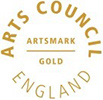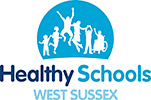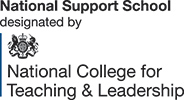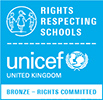Information, FAQ and SEND/Local Offer Report
If you have any questions or queries not answered here, please contact the School Office.
Where can I obtain a copy of the School Prospectus?
Please ask the School Office for a copy or if you would like it sent to your home address please ring them. It is also available to download via the ‘About Us’ tab on our website.
Phonics
We teach Phonics using the Jolly Phonics scheme in lower school and the Letters and Sounds programme in Upper school.
What are the uniform requirements at Manor Green?
We encourage all children at Manor Green to wear the school uniform
Winter Uniform
- Plain white shirt or polo shirt
- Black or grey skirt or trousers
- Green cardigan or sweatshirt
- Strong black shoes
- Green fleece
Summer Uniform
- Green and white check summer dress / short-sleeved white or green shirt or polo-shirt
- Black or grey shorts or trousers
- Plain green baseball cap or sun hat.
PE Kit
- Plain white or green t-shirt
- Plain dark shorts
- Well fitting plimsolls or trainers
- Swimming kit
Gardening Clothes
- Old t-shirt or sweatshirt
- Old trousers
- Wellies or waterproof footwear
Items of embroidered school uniform are available to order online.
Please click this link for Taylor Made Uniforms
Medicine Consent forms are available from our school nurse
What are your catering facilities like?
The children enjoy having a choice from a varied hot lunch menu. Meals are prepared by our own catering staff, who work hard to ensure that the children are provided with a wide range of healthy, balanced meals, in line with the national standards for food in schools.
Our bright, purpose-built, dining room provides a friendly welcoming environment and is large enough for all of the children to have their midday meal alongside each other.
Pupils are supported by familiar staff at the dinner table.
1. How does the setting/school/college know if children/young people need extra
help and what should I do if I think my child/young person may have additional
needs?
- All pupils attending the school have Statement of Special Educational Needs or an Education Health and Care Plan (EHCP), which identifies the school as the most appropriate provision for the pupil. This also identifies the pupil’s primary and where appropriate additional needs and the annual review of the Special Educational Needs Statement/ Education Health Care Plan ensures that they reflect the pupil’s current needs. The primary needs of pupils attending Manor Green School are moderate to complex learning difficulties. This incorporates a range of needs, such as Speech, Language and Communication Needs, Autism and Specific Learning Difficulties.
- The progress of all pupils is monitored termly by class/subject teachers and the senior leadership team so that if a pupil is not making expected progress in a particular area of learning, the school can identify the need for additional support. Intervention plans are drawn up to ensure that staff and parents are aware of the area of need to be focussed on. This is monitored regularly to ensure it makes a difference. Plans will then be discussed with parents/carers at individual pupil progress meetings and, if appropriate, with the pupil concerned.
2. How will the school staff support my child /young person?
- Every child starting at our school will have a statement of Special Educational Needs or an Education, Health and Care Plan. This document outlines the particular needs of your child and recommends the resources, teaching programmes and multi-agency involvement related to meeting those needs.
- Every child has a class teacher who oversees the implementation of the plan or statement. The class teacher, in consultation with parents at the Annual Review meeting will set targets for your child and these will be outlined in their next step targets, which is shared with you as the parent/carer and with all the staff who are working with your child, as well as with your child, where appropriate.
- Next step targets are evaluated regularly to assess the effectiveness and impact of the planned provision.
3. How will the curriculum be matched to my child’s/young person’s needs?
- Your child will follow the National Curriculum and/or the Early Years Foundation Stage curriculum which is adapted to their needs and their learning. It will be differentiated to enable them to make progress.
- Throughout the school pupils are grouped according to their needs, abilities, and age. The level of support will depend on your child’s needs, as identified in their Statement or Education Health Care Plan.
- A broad, balanced, relevant and creative curriculum is in place to ensure high levels of interest and engagement whilst covering all areas required.
4. How will both you and I know how my child/young person is doing and how will you help me to support my child’s/young person’s learning?
- We will discuss progression routes for your child during consultation evenings and annual review meetings in school. Progress against targets and resources to meet need are reported back to the Local Authority for their consideration.
We offer an open door policy and if at any point you wish to discuss your pupil’s progress, an appointment can be made to meet with the class teacher or a member of the Senior Leadership team. Staff in school can offer advice and practical ways that you can help your child at home. Meetings can also take place with the school nurse or HLTA’s for family support to support your child’s needs.
5. What support will there be for my child’s/young person’s overall well-being?
- We are committed to multi-agency working to ensure that the needs of the whole child are met.
- Where appropriate pupils have a care plan which identifies their care needs including personal care needs and the administration of medication when required. It also identifies emergency procedures to be followed, where appropriate.
- Professionals from other agencies including Speech and Language Therapy, Physiotherapy, Occupational Therapy, Sensory Support, Health and Child and Adolescent Mental Health Services (CAMHS) visit the school as appropriate. As well as supporting individual pupils these professionals advise staff around strategies and offer training.
- The HLTA’s for family support, therapy and behaviour in liaison with the class teacher ensures that the pastoral needs of pupils from across the school are met.
6. What specialist services and expertise are available at or accessed by the
school?
- Specialist services are assessed, provided and managed by Health through their local provider. These services can be specified in the Statement or EHCP or may form part of the core offer to the school. These services include: Speech & Language Therapy, Occupational Therapy, and Physiotherapy.
- In addition we liaise closely with other agencies who work collaboratively with school staff in meeting the wider range of pupils’ needs: Social workers, CAMHS, Portage workers and Social Care. The school has a transition lead, Speech and Language Therapist, music/play therapist and an attached Educational Psychologist and NHS Speech and Language Therapy provision.
7. What training are the staff supporting children and young people with SEND
had or are having?
- All our staff receive training and support to meet your child’s education, social and health needs.
- Teaching staff, teaching assistants and middle leaders have accessed targeted programmes of Continuing Professional Development to develop their skills which typically includes a range of specialist training, such as Speech and Language Therapy, the use of Picture Exchange Communication System, Treatment and Education of Autistic and Related Children (TEACCH) and Makaton as well as individual learning styles and programmes.
- Staff receives Team Teach training in order to develop their positive behaviour management skills. Staff who provide personal care receive moving and handling, eating and drinking, and medical training as appropriate.
8. How will my child/young person be included in activities outside the classroom
including school trips?
- Our off-site visits are designed to enhance curricular and recreational opportunities for all our pupils. They provide a wider range of experiences for our pupils than could not be provided on the school site alone, as well as promoting the independence of our children as learners.
- We run after school activities once a week. These could include sports activities, swimming, arts and crafts, ICT, dance and drama.
- We also afford students the opportunity to take part in our Year 6 residential week and activities are appropriate to their individual SEND need. All visits and activities are risk assessed to ensure they are appropriate for individual pupils.
- Parents /carers take an active part in discussions around residential visits and these are discussed both formally at parent meetings/annual review meetings.
- All pupils participate in trips to local and wider community based arts and drama events
9. How accessible is the school environment?
- The building is fully wheelchair accessible with wide corridors. There are a full range of toilet and changing facilities, all of which are accessible.
- There is an immersive hub, sensory room and dark room and soft play room.
- There is a hydrotherapy pool on site
10. How will the school prepare and support my child/young person to join the
school, transfer to a new setting / school / college or the next stage of
education and life?
- Admissions to the school are determined by the Local Authority and it is their responsibility to ensure that the provision meets the needs of your child as identified in the statement or ECHP. Parents are encouraged to visit the school as part of this process.
- Your child will be invited to access transition opportunities, such as visiting the class, or a phased introduction to the school.
- The school provides a specific ‘transition booklet’ for new pupils joining the school at the start of the year, so that the pupil and family have some idea of what to expect when they start in their new class.
- Transition planning is a vital part of the annual review process for our Year 5 and 6 pupils
11. How are the school’s resources allocated and matched to children’s/young
people’s special educational needs?
- The school is resourced by the Department of Education and the Local Authority to provide small class sizes and levels of staffing to meet your child’s needs as identified in the statement or EHCP.
- The use of additional money through pupil premium, Primary Sports funding, is targeted at these specific groups and the impact of this on pupil achievement is reported.
- The school have a proactive “Friend’s Association” who meet half termly. They organise a variety of events to raise money to support the school.
12. How is the decision made about what type and how much support my
child/young person will receive?
- The pupil’s Statement or EHCP identifies a banding level which reflects the pupils’ current needs. This is agreed through discussion between the school and the Local Authority.
13. How are parents involved in the school? How can I be involved?
- We believe that a pupil’s education is a partnership between parents and teachers; therefore we are committed to developing strong communication with parents and carers and communicate regularly. This could be through telephone, emails, letters and face to face contact.
- Parents and carers are invited to all review meetings and a number of parents evenings each year.
- There is a Friends Association as well as parent representation on the Governing Body.
- Family and friends are regularly invited to join in special school days, attend performances, special assemblies and a range of social functions.
Specific training courses are run to support parents; these could include Speech and Language, Makaton, transition and symbol use.
14. Who can I contact for further information?
- For parents/carers, the first point of contact is your child’s teacher.
- If you need more general information about the school contact the school leader in the specific areas:
- EYFS : Sophie Eaton
- Lower school: Sophie Eaton
- Middle school: Jodie Rowe
- Upper school: Jim Duncan
If you are considering your child joining the school, please contact a member of the office staff and a meeting will be arranged with the Headteacher.
SEND Information Report
Please read in conjunction with the local offer.
What kind of SEN provision is available at Manor Green?
This is a maintained day special school for pupils aged reception to 11 years. Pupils will be provided with an appropriately paced and differentiated curriculum. We currently have places for 195 pupils.
At Manor Green the pupils identified needs will be complex including: severe learning difficulties, moderate learning difficulties, profound and multiple learning difficulties or autistic spectrum conditions. These may include pupils with sensory or physical difficulties including visual impairments and hearing impairments. We also provide for pupils with specific learning difficulties and social communication difficulties. Pupils may also experience difficulties with behaviour. The admissions arrangements for our pupils can be found on our web site within the admissions policy.
How will Manor Green identify and assess my child’s needs?
All pupils will have been assessed for and have a statement of special educational needs or from September 2014, and Education, Health and Care Plan (EHCP). Since 2014 the SEN team have been transferring statement to EHC plans.
How does Manor Green evaluate the effectiveness of our provision?
We have robust procedures for self evaluation of our work, including using our School Improvement Partner, governors, stakeholders and external specialists to quality assure the work we do. In addition the school carries out an annual school evaluation looking at then areas of Leadership and management, progress and achievement, behaviour and safety and quality of teaching and learning.
How do I know how well my child is doing at Manor Green?
Each term you will meet with your child’s class teacher at the termly consultation evening. Once a year as part of the annual review you will review your child’s progress by discussing their evidence books/ folders. You will also receive an annual report and have the opportunity to discuss your child’s achievement album. Each week you will have a curriculum coverage sheet in your child’s home/ schoolbook outlining their weekly learning plan. In addition, we have red alert meetings and you can also discuss your child’s progress at any time by phone or by e-mail.
How will the staff support my child and how will the curriculum be matched to my child’s needs?
All planning is highly differentiated and personalised for each child and the support provided for each individual child is outlined in the statement/EHCP and next steps plan. The school team are supported by the school nurse, SALT team, Physiotherapist, Occupational Therapist, Peripatetic Sensory Team and our Play Therapist.
For those pupils with the most complex needs multi-disciplinary meetings are held on a termly basis to plan and review support. Pupil progress meetings are held termly to ensure that all pupils are on track to make rapid and sustained progress and where there is a cause for concern meetings are arranged with parents and/or carers.
How do we adapt the curriculum at Manor Green?
Our curriculum is reviewed every year and is adapted to ensure that it has breadth, balance, creativity and enrichment and is relevant and personalised. We foster an enjoyment in learning whilst ensuring that the core skills of communication, literacy, numeracy, life skills and social and emotional skills are developed.
What additional support for learning is available?
At Manor Green we constantly review and adapt the support required for pupils with the aim of ensuring that all become as independent as possible. We work with other professionals to do this (SALT, OT, Physiotherapy and medical professionals across a range of disciplines).
What further activities are available in addition to the curriculum activities?
Manor Green runs a range of extended clubs such as rebound, gardening, dance, sport and computing every Tuesday. Pupils can also participate in Forest Schools.
What support is there for social and emotional development at Manor Green?
The development of social and emotional skills is at the core of all our work. All the staff work with in a clear behaviour policy that promotes pupil respect and decision making. Within the PHSE curriculum social and emotional skills are fundamental aspect of learning. In addition each class works closely with families to support pupils and our HLTAs for behaviour and family support play a crucial role in supporting our pupils PHSE development. Play therapy and Lego Therapy are offered as part of our extended services. We also offer nurture groups to support those pupils for whom it is helpful.
What training is provided to develop staff expertise?
All of our staff have undertaken significant training and qualifications and continue to do so throughout the academic year. Statutory training is undertaken and all develop their skills in delivery to enhance learning. In addition we provide training opportunities to those training to be HLTAs and teachers. Staff have an individual programme of training through our robust appraisal system.
What equipment and facilities are there to support young people with
special needs?
Manor Green is a fully equipped generic special school with hygiene rooms, hydrotherapy pool, light and sound room,
dark room, fully interactive IT based immersive room and specialist teaching rooms and specialist outdoor learning spaces.
- The school is accessible for all.
How are families involved in the education of their children?
At Manor Green parents are fully included in the process of working with children.
This includes:
• Initial visits to school
• Home visits for reception aged children
• Home school book for information and exchanges of key messages
• Termly consultation evenings
• End of year report and achievement book meeting
• Annual Review meeting
• Behaviour meetings
• Parent workshops and training
• SALT coffee mornings
• Parental representation on the governing body
• Parental questionnaires
• Weekly newsletters and parent mail
In addition to this there is the Friends of Manor Green, a charitable organisation that promotes our work and helps to raise funds to continually improve the school
How are young people consulted about their views in relation to their education?
All pupils in our school are treated with dignity and respect. There is full personalisation of the curriculum for each pupil in order that they can access and experience success throughout their school life. The student council invites pupils to contribute to and decide on aspects of school life related to their needs. The assessment and annual review process of statements and EHCPs includes the choices and views of the pupils. All pupils are asked to complete an annual questionnaire and their views are built into our school improvement plan.
What do I do if I have a concern about provision at Manor Green?
In the first instance contact your child’s class teacher. If you still have a concern then please contact the Headteacher. Please refer to the Complaints Policy for further information.
What specialist services can be accessed at Manor Green?
The school receives advice from a range of health professionals in order to meet the needs of pupils as assessed by the appropriate professionals. The school has a school nurse who works on site, a team of SALTs and SALTAs, a physiotherapist and occupational therapist. There are regular multi-agency meetings to review pupils.
What are the school’s arrangements for supporting pupils transferring between phases of education or in preparing for adulthood?
All transitions are well planned for throughout school as pupils move from class to class and from Key Stage.
Pupils are increasingly supported in planning for their transition from primary to secondary. Transition experiences are provided for pupils and we work with secondary schools to ensure that transition is as positive as possible for our young learners as they leave primary provision. Pupils joining us in Little Acorns will have the opportunity to visit, receive a home visit and have a taster session(s) prior to their September start. We work closely with families to ensure that the move to full time schooling is appropriate to the individual needs of the child. Pupils joining in other years will have sensitive, appropriate transition arrangements depending on their specific needs and circumstances.








